Truth

THE DOMINANT cultures of North America have long struggled to take responsibility for the suffering and injustice inflicted upon the Indigenous Peoples of the continent. The archetypal “us/them” story of cowboys and Indians remains at the core of North American national identities, from derogatory sports mascots and symbols such as the Washington “Redskins” and the “Chief Wahoo” character of the Cleveland Indians to the ignorant “redfacing” by non-Indigenous partygoers and trick-or-treaters in contrived Indian outfits. And this situation is nowhere near ending, despite many years of cultural sensitivity training and education.
Such overt racism should never be acceptable today. Yet it persists in regard to Indigenous Peoples. Why is this? As one friend remarked to me, most modern-day Americans believe injustices done to Indigenous Peoples to be a thing of the past.
But are they? Steve Heinrichs, director of Indigenous relations for the Mennonite Church in Canada, has brought together nearly 40 theologians, activists, writers, and poets—half of whom are Indigenous—to create Buffalo Shout, Salmon Cry: Conversations on Creation, Land Justice, and Life Together, a challenging anthology on Indigenous-Christian relations, stolen land, racism, and the impending environmental crisis that we all must face together.
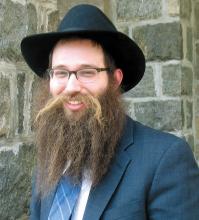
I MEET Yehoshua November in an empty classroom in Touro College in Brooklyn, N.Y., where he teaches. The chairs and desks are piled to one side, like a barricade. We sit in a clearing beside the clutter, talking about his place as the only Hasidic poet—he is a 34-year-old member of the Lubavitch sect—on the American literary landscape, an entity ruled largely by secular academics far removed from the realities and sensibilities of ultra-orthodox Jewish observance and mysticism.
“They are the rabbis of poetry,” November laughs. He laughs so hard he doubles over in his chair. His laughter is as strange as it is infectious. Yet in all of God’s Optimism, his book that was short-listed for the 2010 LA Times Book Prize, there is not a single laugh line. His poems are serious, if lightly held narratives, some parable-like, most down to earth with a longing for heaven.
“Poetry is their vision of spirituality, their own religion, and they don’t want traditional religion brought in,” he says.
Even November’s long, reddish beard seems delighted at their rebellion against traditional religion. An antinomian Hasid and unashamed of it.
When I first read God’s Optimism, the poem I kept going back to was “Baal Teshuvas at the Mikvah” (baal teshuvas are secular Jews who return to religious observance), a poem of solidarity with those intimate others who came to Hasidism through the tunnel of the profane, commonly marked by drug use and sexual looseness, for the sake of spiritual passion held within a net of restrictions.
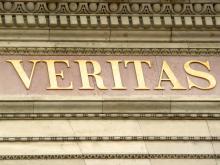
IF YOU WANT to understand why the climate movement missed Tim DeChristopher when he was in jail for two years, you should read the letter he sent recently to the president of Harvard.
Drew Faust—Harvard’s first female president—had just spoken for the establishment (really, the establishment establishment) by publishing a weary, soulless letter explaining that Harvard would not divest from fossil fuels despite the request of 80 percent of its student body. DeChristopher—who was imprisoned for two years after an inspired act of civil disobedience to block a drilling lease auction in his home state of Utah—had just arrived in Cambridge to start at Harvard Divinity School.
“Drew Faust seeks a position of neutrality in a struggle where the powerful only ask that people like her remain neutral,” DeChristopher wrote. “She says that Harvard’s endowment shouldn’t take a political position, and yet it invests in an industry that spends countless millions on corrupting our political system. In a world of corporate personhood, if she doesn’t want that money to be political, she should put it under her mattress. She has clearly forgotten the words of Paolo Freire: ‘Washing one’s hands of the conflict between the powerful and powerless means to side with the powerful, not to remain neutral.’ Or as Howard Zinn put [it] succinctly, ‘You can’t be neutral on a moving train.’”
DeChristopher is exactly right. Just as a tie goes to the runner, so “neutrality” goes to the status quo. And given that we’re in a full-on climate emergency—the Arctic melted last summer, for crying out loud—this kind of neutrality is no more admirable than defending the right of poor and rich alike to sleep beneath bridges.

LEE DANIELS’ The Butler, a century-spanning tale of race in the United States and service in the White House, is a dream of a film—by turns historically realistic and magically fable-like. It’s a perfect companion piece to last year’s Django Unchained, in that case a movie whose tastelessness wrapped up as fabulous entertainment forced audiences to engage with a deeper level of the shadow of U.S. history.
Based on the story of Eugene Allen, a black man who served multiple presidents in a White House that took its own time to desegregate its economic policies for domestic staff, The Butler begins with a rape and a murder of plantation workers by the son of the boss. The ethical quality of the film is immediately apparent. This horror is not played for sentiment, nor even spectacle, but to evoke the very ordinariness of monstrosity.
This makes The Butler a rare film: one more interested in confronting us with a kind of previously unspoken truth than in goading us to feel the catharsis of guilt-salving by association. (It’s the antithesis of films such as Mississippi Burning, which use white protagonists to tell black stories and appear to believe that we can somehow participate in the virtue of the civil rights movement just by watching a movie about it.) The makers of The Butler have told a kind of truth about the struggle for “beloved community” that has rarely been seen so clearly on multiplex screens. The film illustrates the serious and painful work of nonviolence and invites us to consider the political and cultural tensions within the black freedom struggle, while giving a more humane perspective on the presidency than is often the case. We can hope the door is now open to more reflective cinema about the unfinished business of the black civil rights movement, broken relationships, traumatic memory, and how we tell the story of who we are.
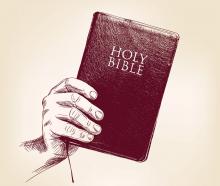
One Sunday morning, I was facilitating a discussion with the teenagers in my small group. The students were engaged. Most of them voiced their opinions. Some of them even backed their views up with Scripture. Others defended their stance based on personal experience. The discussion was going well, but we had veered so far off course that I wasn't sure how to make our way back to the original topic. Usually this didn't bother me, because those seemed to be the times their perspectives were broadened the most. But I could see things were beginning to get heated. The students were divided and beginning to make things personal.
I interrupted the students in hopes of bringing them back to the point at hand. It didn't help. The open dialogue on truth had taken a turn for the worse. It was now a full on assault in which denominational pride resorted to church bashing and religion hating. I knew that if I didn't intervene soon, all hell would break loose — the Crusades would be re-birthed and someone might get burned at the stake. After a while, my frustration got the best of me and I opened my mouth long enough to let a few unfiltered words fly. No, I didn't yell, swear at them, or lose my temper in any manner. Had that been the case, I'm sure the backlash would have been much quicker and less severe.
There, in the middle of what used to be the sanctuary, I told that small group of teenagers they could find truth in the Qur'an.
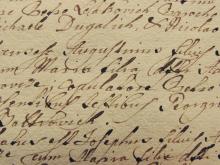
THE FUNCTION of healthy religion and church is to provide individuals and society with a collective container that carries the objective truth of reality for individuals. The Great Truth is too grand and transcultural to be entrusted to the vagaries of individuals and epochs. Otherwise, society becomes a massive runway for unidentifiable flying objects—each claiming absolute validity and turning their subjectivity into the only sacred.
The ground for a common civilization and shared values is destroyed if our religious experience is basically unshareable or without coherent meaning. We end up where we are today: pluralism without purpose, individuation but no community.
CRITICS HAVE BEMOANED the lack of fiction centered on climate change, which seems to mirror our public sluggishness about this scientific reality. But two recent novels, Barbara Kingsolver's Flight Behavior (Harper) and Lauren Groff's Arcadia (Voice), artfully integrate climate change into their plotlines, weaving scientific truth about global warming into the lives of fictional characters. Just as compelling, both works of fiction feature spiritual community at the center of critical decisions about the future of the land and its inhabitants.
Flight Behavior is a lyrical story set in rural Tennessee with the fiercely intelligent Dellarobia Turnbow as the main character. She encounters a vast sea of monarch butterflies that seem to have taken a wrong turn on their migratory path, a result of a miracle—or a warming planet. Journalists, ecologists, and locals speculate about the misplaced monarchs. In an impassioned but measured plea for the land, the local pastor invokes a biblical mandate for creation care.
In Arcadia, climate change doesn't enter the narrative until the conclusion of the story, which is the tale of an intentional community started in the 1960s. The central character, Bit Stone, returns to a failed commune in upstate New York, where he grew up, to care for his ailing mother. Set in 2018, the dystopian conclusion is marked by climate change and global pandemics, but the values of the original spiritual community set up a struggle between the desire for freedom and the creation of shared life.
DREAMS CAN serve a powerful purpose. Jacob dreamed a ladder and was renamed Israel. Joseph dreamed the sun and moon and stars and was sold into slavery. The magi dreamed a warning and returned home by way of another road.
Years ago I had a dream. I sat, a child, on a dirt floor. Around me paced a horse, saddled, ready. In front stood an immense door, cathedral-tall and brooding. And though open, the space within was dark. I was holding a light. And in the dream, I knew we were to bring light into that darkness. And the darkness—the darkness was the church.
In Truth Speaks to Power: The Countercultural Nature of Scripture, Walter Brueggemann, professor emeritus of Old Testament at Columbia Theological Seminary, bears light to the exegetical (seminary lingo for interpretive) work and examination of the interplay between truth and power found in both familiar and less familiar narratives of Old Testament scripture. Rigorous in content, the read is nevertheless accessible to scholar and novice alike.
Brueggemann's concern with the interplay of truth and power rests on the observation that far too often truth, even biblical truth, is found colluding with and legitimizing the self-serving and self-preserving agenda of totalistic and monopolizing authorities. To use biblical imagery, truth sides with the Pharaohs and the Solomons of the world and not with those on its margins and periphery.
The first two chapters draw on Brueggemann's impressive scholarship of Old Testament text and narrative to paint a disconcerting picture where not only are the bad guys truly bad, the good guys aren't any better. Take Joseph, the Technicolor-dreamer-slave become all-powerful-vizier (think prime minister) of Egypt. It is Joseph's land acquisition scheme, strategically implemented amid drought and famine, that results in Pharaoh controlling most of Egypt's wealth. It is Joseph who creates a permanent peasant underclass—the very class that will cry out for liberation from the injustice of having to bake bricks with no straw. And Solomon—well, you know something's gone terribly amiss when your empire accumulates "six hundred sixty-six talents of gold" (1 Kings 10:14) each year. If you don't see the editorial subtext, write it out numerically. Ouch!
ONE EVENING LAST July, I walked up to the Port Everglades U.S. border checkpoint in Fort Lauderdale, Fla., to intentionally turn myself in to U.S. Customs and Border Protection. My mission: to get into Broward Transitional Center, a privately run U.S. Immigration and Customs Enforcement (ICE) detention facility, to expose the stories of those held there. It's categorized by ICE as a model facility. But as I witnessed firsthand, it is nothing short of a prison where, as in the other 250 immigration prisons across the U.S., immigrants are arbitrarily held and exposed to all kinds of human rights abuses.
The total number of undocumented immigrants detained in the U.S. each year is sky-high—ICE detained 429,247 people in 2011 alone. In August 2011, the administration announced that it would focus its deportation efforts on people with criminal records. "Obama is only deporting gangbangers and felons," established immigrant advocacy organizations said. "He's our guy for immigration reform!"
But that is far from true. In my work with the National Immigrant Youth Alliance (NIYA), I keep hearing the real stories of immigrant prisoners and the loved ones from whom they're torn.
Getting detained was part of a strategy of civil disobedience that fellow activists and I have been pursuing since 2010: In order to pressure ICE and the government, we have to put ourselves on the line. I was one of two Youth Alliance activists who sought to infiltrate the Broward Center to find out the inside story. We also set up a telephone hotline, funded by donations from the community, to take calls from people detained in the center.
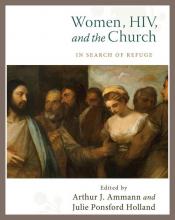
EXCLUDING WOMEN from leadership weakens the commitment and contributions of churches, theological institutions, and the global church in their participation in God's prophetic mission. It translates to women's priorities and specific needs being inadequately articulated and under-resourced.
For instance, matters of sexuality, reproductive health education, and justice are hardly ever discussed in churches or theological institutions, except when governments want to legalize abortion. Similarly, little attention is given to maternal health care despite the high rates of maternal death and infant mortality in Africa. It is not enough for churches to focus on baptizing children, blessing them, and welcoming them into the house of God when they neglect to care for their well-being from the time they are in their mothers' wombs, especially now that so many children are born HIV-infected. Responsible and healthy sexuality, childbearing, and parenting are matters that require full engagement of both women and men, and the churches should be at the forefront of providing much-needed education.
Women have been left to shoulder the burden of the times: preventing HIV transmission, facing HIV-related stigma, handling deaths, and addressing the myriad other adverse impacts that the HIV pandemic has created. Similarly, in the Circle of Concerned African Women Theologians, of which this author is a founding member, women have provided leadership in naming theological, ethical, cultural, and religious beliefs, as well as harmful practices and leadership styles, that fuel gender disparity, social injustices, and the spread of HIV in religious communities and in society at large. The Circle also has endeavored to provide theological and ethical reflections that are empowering and transformative to the behaviors contrary to God's will for how women and men relate to each other in families, religious contexts, and everyday life.

A TRADITIONAL whale-oil lamp is solemnly lit by an Inuit elder. After being brushed with cedar and smudged with sage, three commissioners take their seats. A survivor begins his testimony, haltingly narrating painful memories from 60 years ago. Soon tears begin to flow, and a support person carefully collects the tear-soaked tissues into a basket, to be added to the sacred fire that burns outside the hall. In this space, so filled with sorrow and rage, every ritual communicates respect, empathy, and determination, turning public halls into sanctuaries of healing.
For seven generations Indigenous Canadian children were taken from their homes and sent, most often by force, to Indian Residential Schools. Churches began operating these schools in the early 1860s, and by the 1890s the federal government had begun to make attendance mandatory as part of a policy of assimilation into Canadian society. In these schools children were forbidden to speak their native languages, forced to conform to European ways of life, and often abused emotionally, physically, and sexually. Though most residential schools were closed by the mid-1970s , the last was not shuttered until 1996.
As part of a 2007 legal settlement with survivors, the Truth and Reconciliation Commission of Canada (TRC) was created, with a five-year mandate to document the testimony of survivors, families, and communities affected by the residential school experience and to inform all Canadians about this tragic history. Launched in Winnipeg in June 2010, the TRC will include seven national and a number of regional hearings throughout the country. The hope is to “guide and inspire Aboriginal peoples and Canadians in a process of reconciliation and renewed relationships that are based on mutual understanding and respect.”

IT WOULD BE strange if any segment of the liturgical year left out the theme of migration. The Bible is riddled from end to end with the journeys of nomads, pilgrims, exiles, returning exiles, and the risky intrusions of strangers across boundaries erected to deter them.
This season’s poster child for divinely inspired mobility is the lovely figure of the Moabite “alien” Ruth, who chooses to leave her own country and accompany her beloved Jewish mother-in-law when she returns as a widow to her native Judea. Ruth’s story is romantic, even erotic, as she daringly slips into the arms of Boaz during the sexually charged siesta at the threshing floor. But our readings are no mere novelette. Scripture shows how much hinged on her pluck and her allure. Her great-grandson will be David, and her descendant Jesus the Messiah!
“Where would we be without immigrants?” is one of the many questions between the lines of the scriptures. The Bible has lots to say to us about the divine impulse active in migrations, and the opening of the heart to “strangers within our gates”—things guaranteed to alarm defensive nationalists of every stripe.
I remember the deep spiritual emotion that caught us all up in Boston’s Faneuil Hall during my naturalization ceremony—Cambodian refugees, Vietnamese grandmothers, Salvadoran families, and all the rest of us. I think of the migration of my own great-grandparents to Russia, and the adventures that have scattered my own family from New Zealand to Mexico. How God revels in mixing us all up!

I don't think of myself as a news-reading star; many spend far more time than I do staying informed. But I do recognize that being informed takes effort. As more and more cities lose their newspapers, and as networks like Fox abandon any pretense of journalistic integrity and simply broadcast misinformation, the work of staying informed gets more complicated.
I occasionally read broadsides from Tea Party folks and wonder what alternate universe they inhabit. Their positions seem unhinged from fact, history, and generally accepted reality. I imagine they'd say that a world informed by "liberal media" like The Times isn't any closer to being fact-based.
How do we debate important issues when we don't share a common foundation of facts? Dueling opinions are the heartbeat of politics. Dueling facts, however, lead mainly to shouting, bullying and mistrust.
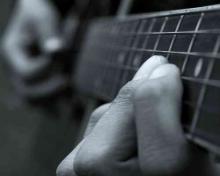
"If you tell a lie, it will be all over the country in a day or two. But if you tell the truth, it will take ten years to get there." ~ Eddie "Son" House
And the truth is what Jesus offered the people of his hometown in this tale from Mark's Gospel. Jesus offered his prophetic witness of truth-telling. He held up a mirror and showed them who they were. He held up a mirror and said to them, "The Kingdom of God is with you."
They were enraged that one of their own would do such a thing.
He was utterly astonished that the people who had raised him were incapable of facing their own truth.
He also knew that if they could not face the realities of their own complicated lives they would not be able to embrace the healing and forgiveness that God offered.
Jesus had the blues. He had the hometown blues.
So, rejected, he fled his hometown.
Then he sent his apostles out into the world proclaiming peace, healing the sick and the lame, and prepared to face the same rejection. People don't like to be reminded of the complications of real life. None of us like the feeling of being judged when the mirror is held up before us.
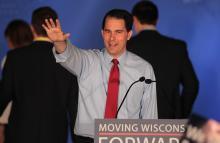
The votes are counted, the concession speeches made, the victory parties had. Wisconsin, a word that has become as synonymous with divisive politics as it is for cheese and beer, is done with the recalls.
In the end, some change was made. Between the first round of recalls and yesterday’s election, the senate has shifted from Republican to Democratic control. And yet, not much has changed. We still have a union-busting governor and a climate change doubter as lieutenant governor.
The calls, from politicians and citizens, have been pretty consistent. It is time to move forward. It is time to put aside our divisions and find a way to govern together. It is time of our state to heal.
Whatevs.
See, I’m not all that interested in moving forward – not because I like the fighting or because I think it is healthy to be so divided that the mere mention of politics in casual conversation makes blood pressures boil.

Ah, the life of the church. So many arguments, so little time.
The list of subjects about which the saints disagree is seemingly endless, encompassing both the profound and the woefully mundane.
The ordination of women. The proper role of religion in politics. Climate change. Homosexuality and same-sex unions. Pre-, Post-, or A-millennialism. Biblical translation. Gender pronouns for God. How best to aid the poorest of the poor. How best to support the sanctity of marriage. Hell. Heaven. Baptism. Which brand of fair-trade coffee to serve in the fellowship hall. The use of “trespass/es” or “debts/debtors” in reciting the Lord’s Prayer. Whether to use wafers, pita, home-baked organic wheat, gluten-free or bagels at the communion table. What color to paint the narthex.
It should come as no surprise to most Christians that the world outside the church looking in sees it rife with conflict, bickering, arguments and castigation — of the “unbeliever” and fellow believers alike.
Frankly, it also should come as no surprise to the rest of the world that the church — by virtue of being a community of humans — naturally would have such disagreements and discord.
In our own time the "jobs" rhetoric from both the right and the left ignores the power grabs and power differentials that led to the hemorrhaging of American jobs in the first place. The simple truth is that multinational corporations could make more money for their shareholders by outsourcing jobs to third-world countries so that is what they did.
This was not a moral dilemma for CEOs; it was a "sound business decision." And the gospel according to free-market capitalism (the USA's true religion) preaches that what is good for American business is good for America.
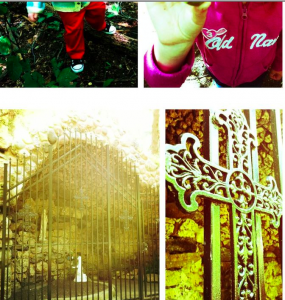 "Jesus' spirituality was magnetic. Wherever he went, people gathered. His love, understanding and compassion toward humanity was overflowing and people traveled from afar to find solace in his teachings and to breathe life into their spiritual lives. His message of inclusiveness was seen as a threat by the religious leaders of his time -- whose very existence relied on a system of exclusivity."
"Jesus' spirituality was magnetic. Wherever he went, people gathered. His love, understanding and compassion toward humanity was overflowing and people traveled from afar to find solace in his teachings and to breathe life into their spiritual lives. His message of inclusiveness was seen as a threat by the religious leaders of his time -- whose very existence relied on a system of exclusivity."
"It ALL began when they come took me from my home
And put me on Death Row,
a crime for which I am totally innocent, you know."